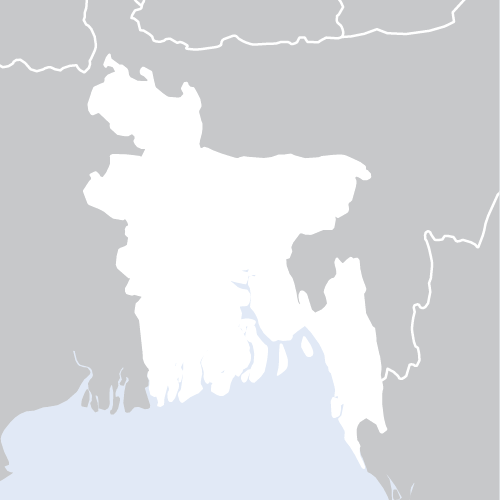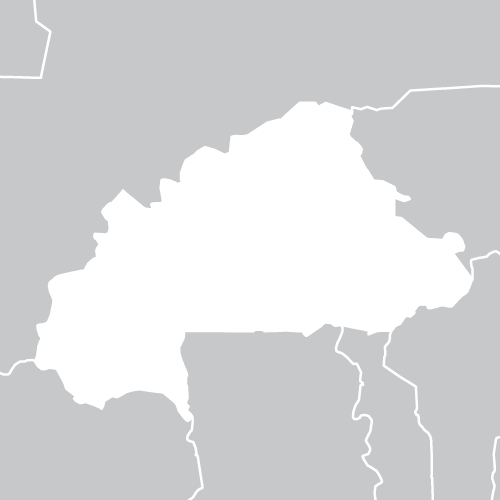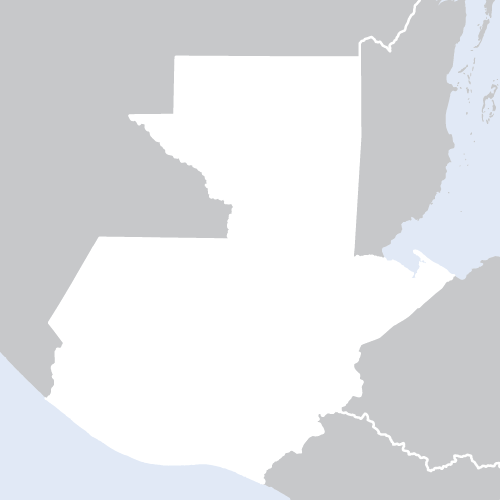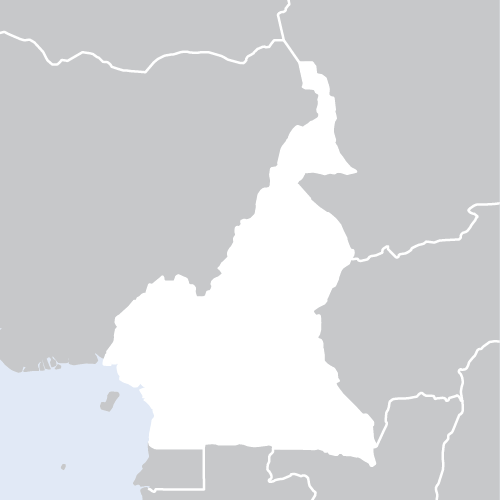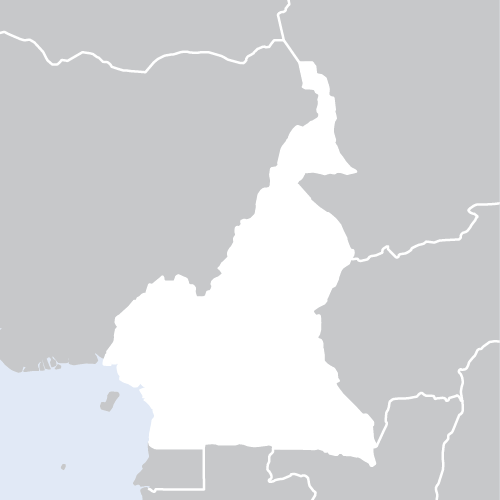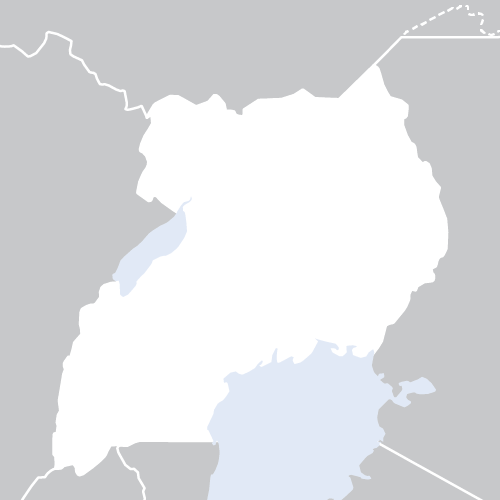Job title : MEAL Coordinator
Line Manager : Programme Development and Quality Manager (PDQM)
Technical line manager
Duty Station : Yaounde with frequent field visits
Area of Operation : Adamawa, East, North, Far North, Southwest and Northwest regions
Duration : 1 year renewable
Type of contract : National
Salary & Benefits : N.M G1
Introduction
The Danish Refugee Council (DRC) provides essential support to refugees and internally displaced persons worldwide, offering life-saving assistance during the initial stages of displacement crises and supporting transitional and long-term solutions in prolonged displacement situations. We continuously advocate for the rights of those affected by displacement and work to empower them. Our efforts extend across conflict-affected regions, along displacement routes, and in areas where refugees and IDPs settle. By collaborating with local actors and systems, we strive for responsible and sustainable solutions to displacement.
Founded in Denmark in 1956, DRC has grown into an international humanitarian organization with over 7,000 staff members and 8,000 volunteers. Headquartered in Copenhagen, Denmark, and operating in forty countries, DRC is a non-profit, politically independent, non-governmental, and non-denominational organization.
Our vision is a dignified life for all displaced individuals. Our work is guided by our core values: humanity, respect, independence and neutrality, participation, and honesty and transparency.
1. Background
DRC has been active in West and Central Africa since 1998. The DRC West Africa, North Africa, and Latin America Regional Office is based in Dakar, Senegal, and oversees operations in twelve countries outside Senegal. The Cameroon country office, established at the end of 2017, currently includes a coordination office in the capital, Yaoundé, an area office in Buea covering the Southwest region, an area office in Meiganga covering the Adamawa and East regions, and an area office in Maroua covering the Far North region.
DRC Cameroon implements a variety of humanitarian, nexus, and durable solutions projects, targeting internally displaced persons (IDPs), refugees, and host communities.
We are seeking an experienced professional with a strong background in humanitarian and nexus projects to join our Programs team in Yaoundé.
2. Purpose
The MEAL Coordinator is part of DRC Cameroon’s coordination team, based in Yaoundé, and collaborates closely with colleagues in the Programs team. Positioned within the Programme Development and Quality department alongside the Grants Trainee and the Information Management Specialist, the MEAL Coordinator reports directly to the Programme Development and Quality Manager.
The primary aim of this role is to strengthen DRC’s monitoring, evaluation, learning, accountability, and information management systems across Cameroon. With a country-wide focus, the MEAL Coordinator ensures compliance with DRC’s procedures, standards, and guidelines within Cameroon. This role also contributes to the development of country strategies, translating them into actionable plans and day-to-day activities. By providing technical guidance and support to operational teams (both DRC and local partners), the MEAL Coordinator fosters capacity building and offers close coaching and oversight across all MEAL-related activities.
3. Duties and Responsibilities
- Monitoring and Evaluation
- Collaborate with the Programme Development and Quality department to design robust indicators and logical frameworks for new projects.
- Support Project Managers in implementing Monitoring & Evaluation (M&E) plans, ensuring timely updates, and preparing M&E findings for donor reporting.
- Coordinate with field teams to develop and refine data collection tools and methods, including surveys, assessments, and beneficiary data collection systems.
- Integrate data and grant management tools into project activities, providing training and support for effective usage.
- Organize, participate in, and lead field data collection, processing, and analysis.
- Conduct field assessments, evaluations, and other reviews, providing physical oversight where feasible.
- Facilitate regular sharing of M&E results with project teams and national partners, contributing to continuous improvement.
- Build the capacity of DRC and national partner MEAL staff to enhance field monitoring and other evaluation needs.
- Review assessment questionnaires and other data collection instruments developed by field teams.
- Strengthen DRC’s M&E department through strategic recruitment, capacity building, and performance management.
- Lead support efforts for external evaluations and consultancies related to large DRC projects.
- Accountability
- Accountability to Affected Populations (AAP)
- Develop and implement AAP frameworks in line with Core Humanitarian Standards (CHS) to ensure that DRC’s programs are responsive to the needs and voices of affected populations.
- Design and support feedback and complaints mechanisms that enable safe, confidential, and accessible channels for affected populations to voice concerns and provide feedback on DRC’s services.
- Facilitate consultations with community representatives, ensuring that their input informs program design, adaptation, and evaluation processes.
- Promote a culture of accountability to affected populations across all DRC Cameroon projects, training staff and partners to prioritize community feedback in decision-making.
- Monitor the effectiveness and responsiveness of AAP systems and adjust approaches based on feedback received.
- Conduct regular assessments and incorporate community feedback to improve program quality and satisfaction among affected populations.
- Collaboration with Local Partners and Capacity Building
- Work collaboratively with local partner organizations to strengthen their MEAL systems, ensuring alignment with DRC’s standards and donor requirements.
- Design and deliver tailored training sessions for local partner staff, covering key MEAL topics such as data collection, data management, analysis, and reporting.
- Provide ongoing technical support and coaching to local partners, enhancing their ability to independently carry out MEAL activities with rigor and consistency.
- Support local partners in developing logical frameworks, setting appropriate indicators, and crafting effective data collection tools.
- Conduct regular assessments of partner MEAL capacities, identifying areas for improvement and implementing capacity-building initiatives.
- Facilitate knowledge-sharing sessions with local partners to exchange best practices, promote integrated programming, and encourage adaptation of successful approaches across projects.
- Ensure continuous support for partners in establishing accountability mechanisms and complaint/feedback systems that uphold beneficiary rights and dignity.
- Learning and project quality
- Develop and Maintain Learning Platforms: Create and manage a centralized platform to consolidate and share project learnings, best practices, and insights from M&E findings across teams and partners.
- Facilitate Capacity-Building Sessions: Organize workshops and training sessions to improve team and partner competencies in data collection, analysis, and application of M&E insights in program design and implementation.
- Strengthen Feedback Loops: Establish and monitor feedback mechanisms to ensure that insights from M&E findings are integrated into ongoing project adjustments, fostering adaptive management.
- Conduct Comparative Analysis: Analyze trends and performance across similar projects to identify patterns, challenges, and opportunities for improvement and recommend adaptations.
- Collaborate on Tool Development: Work with program teams to refine or develop M&E tools and processes tailored to capture learning outcomes and quality improvement indicators.
- Foster a Learning Culture: Advocate for a proactive learning culture by encouraging regular reflection on successes and challenges, documenting lessons learned and incorporating them into program planning and decision-making.
- Ensure Donor Compliance in Learning Practices: Ensure all learning documentation meets donor requirements and aligns with compliance standards, especially in reports and program evaluations.
As coordinator, the post-holder is responsible for the following (in his/her area of expertise):
- Responsible for coordinating the country strategy.
- Responsible for supporting the programme quality.
- Any other ad hoc tasks upon request of HoP or CD.
4. Required Qualifications
Essential experience and technical expertise:
- Minimum of 5 years of work experience within the field of monitoring and evaluation
- Experience working with International NGO’s, UN agencies, line ministries and/or local authorities in migrants/refugee settings in complex emergencies
- Proven experience in effectively working with a variety of donors’ requirements including ECHO, EU, SIDA, BHA, BPRM
- Experience in developing/ guiding information management systems for large humanitarian programs
- Experience in participatory assessment and community-based monitoring approaches
- Very good skills in analysis frameworks, with data analysis for quantitative and qualitative data and communicating evidence
- Clear understanding of Core Humanitarian Standards (CHS)
- Experience with capacity building of staff, and in convening and facilitating trainings and workshops
Full professional proficiency in English and in French including excellent analytical and report writing skills
- Experience with providing direct and remote technical support to operational teams.
- Experience in working with local partners, local authorities and other INGOs in consortium.
Education
- Master’s degree in international development, economics, social science, statistics any other relevant field.
- Any other relevant professional training will be considered.
5. Required Skills & Qualities
- Core Competencies of DRC:
- Striving for excellence
- Collaboration and partnership development
- Taking the lead
- Communication
- Demonstrating Integrity
- Ability to work in a multinational and multicultural environment.
- Excellent writing, proof-reading, and communication skills.
- Excellent organizational and multi-tasking skills.
- Strong ability to adapt, take initiative.
- Interest for humanitarian sector and donor’s environment.
- Listening, analytical and synthesis skills.
- Excellent communication skills, as well as patience and politeness, are required.
- Exemplary sense of ethics in the workplace.
6. General regulations
- The employee shall follow DRC instructions on safety, confidentiality, and ethical guidelines, including the Code of Conduct and the Humanitarian Accountability Framework
- Employee should not engage in any other paid activity during the DRC contract period without prior authorization.
- Employee should not engage in any activity that could harm DRC.
- Employee should not give interviews to the media or publish project-related photos or other material without prior authorization.
- Employee shall return all borrowed equipment for the project to DRC after the end of the contract period or upon request.
- Employee shall respect beneficiaries and partners rights and dignity.
How to apply
7. Processus de candidature
Si vous êtes intéressé(e), alors postulez en ligne via le lien : Vacancies | DRC Danish Refugee Council
Les candidatures ne peuvent se faire qu’en ligne, sur le site indiqué ci-dessus. Vous devez télécharger en ligne votre CV (3 pages maximum) ainsi qu’une lettre de motivation. Le CV et la lettre de motivation peuvent être en français ou en anglais.
Les candidatures réalisées par voie postale, par envoi de courrier électronique ou par dépôt d’un dossier physique ne seront pas considérées.
DRC fournit des opportunités égales en termes d’emploi et interdit toute pratique de discrimination basée sur la race, le sexe, la couleur de peau, l’appartenance religieuse, l’orientation sexuelle, l’âge, l’état civil ou bien une quelconque situation de handicap. DRC ne pratique aucune discrimination dans le cadre de ses processus de recrutement.
Les candidatures seront clôturées le 18 novembre 2024 à 18H : 00 heure du Cameroun. Candidatures reçues après cette date ne seront pas considérées.
Néanmoins, il est possible pour DRC de commencer, dès avant la fin de la publication de l’offre, le processus de recrutement si une candidature répond aux attentes et exigences du poste.
